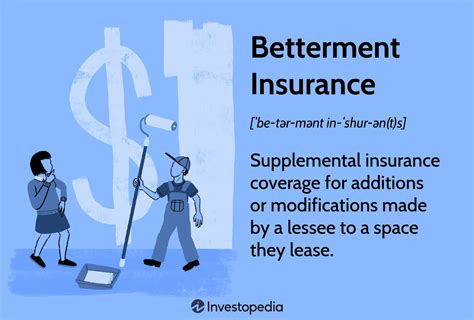Find out the importance of property insurance, types of coverage, and how to choose the right one. Get benefits for homeowners.
Understanding Property Insurance
Contents
Property insurance is a type of insurance that provides financial reimbursement to the owner or renter of a structure and its contents, in the event of damage or theft. It can also provide liability coverage against accidents in the home or on the property. This type of insurance typically covers a range of properties, including homes, apartments, condominiums, and rental properties.
When it comes to property insurance, there are a few key terms that you should be familiar with. The first is the premium, which is the amount of money you’ll pay for the insurance policy. Then there’s the deductible, which is the amount of money you’ll have to pay out of pocket before the insurance coverage kicks in. Finally, there’s the coverage limit, which is the maximum amount of money the insurance company will pay out for a claim.
There are also several different types of property insurance policies available, including homeowners insurance, renters insurance, and landlord insurance. Each of these policies varies in terms of coverage and cost, so it’s important to carefully consider your specific needs and goals when choosing the right policy for you.
When it comes to choosing a property insurance policy, there are a few things to keep in mind. It’s important to carefully review the coverage options and limits, as well as the cost of the policy. It’s also a good idea to consider working with an experienced insurance agent who can help you understand your options and find the best policy for your needs.
Overall, property insurance is an important way to protect your home and belongings from unexpected events. By understanding the basics of property insurance and carefully choosing the right policy for your needs, you can have peace of mind knowing that you’re protected in the event of an accident or disaster.
Types of Property Insurance Coverage
Property insurance coverage can vary significantly depending on the type of policy and the specific risks that are covered. There are several different types of property insurance coverage available to homeowners, each offering varying levels of protection.
One common type of property insurance coverage is dwelling coverage, which protects the main structure of a home from damage caused by perils such as fire, wind, and hail. This type of coverage typically also includes coverage for attached structures, such as a garage or deck.
Another important type of coverage is personal property coverage, which protects the belongings inside the home, such as furniture, clothing, and electronics, from damage or theft. This coverage can be especially valuable in the event of a burglary or natural disaster.
Liability coverage is also a crucial component of property insurance, as it provides protection in the event that someone is injured on the property and decides to sue the homeowner. This type of coverage can help cover legal expenses and potential damages awarded in a lawsuit.
Finally, additional living expenses coverage can be a lifesaver in the event of a disaster that renders the home uninhabitable. This type of coverage can help cover the cost of temporary housing, food, and other necessary expenses while the home is being repaired or rebuilt.
Importance of Property Insurance
Property insurance plays a crucial role in protecting your valuable assets from unexpected events such as natural disasters, theft, and accidents. By having a reliable property insurance policy in place, you can safeguard your investment and avoid potential financial losses. This insurance coverage provides peace of mind, knowing that your property is protected against unforeseen circumstances that could result in significant damage or destruction.
With the increasing frequency of natural disasters and other unforeseen events, having property insurance is more important than ever. Whether you own a home, rental property, or commercial building, having the right insurance coverage can make a significant difference in the event of a loss. By investing in property insurance, you are taking proactive steps to protect your assets and ensure that you are not left financially devastated in the event of a disaster.
Moreover, property insurance can provide coverage for not only the physical structure of your property but also the contents and personal belongings inside. This can include furniture, appliances, electronics, and other valuable items. Without adequate insurance coverage, you may be at risk of losing everything you have worked so hard to acquire in the event of a fire, burglary, or other catastrophic event.
In addition to protecting your physical property and possessions, property insurance can also provide liability coverage in the event that someone is injured on your property. This coverage can help protect you from legal and medical expenses, as well as potential lawsuits, which can arise from accidents or injuries that occur on your property.
Ultimately, the importance of property insurance cannot be overstated. It is a fundamental component of responsible property ownership and a critical safeguard against unexpected events that could have a devastating impact on your financial well-being.
How to Choose the Right Property Insurance
Choosing the right property insurance is essential for protecting your valuable assets and securing your financial future. With so many options available, it can be overwhelming to navigate through the various policies and providers. To make an informed decision, consider your specific needs and budget, and then compare different insurance plans.
First and foremost, research is key. Start by researching the top property insurance providers in your area and gather information about their reputation, customer service, and coverage options. Look for reviews and testimonials from current policyholders to gain insight into the company’s reliability and satisfaction rate.
Next, assess your property’s needs and risks. Determine the value of your property and belongings and consider potential hazards such as natural disasters, theft, or liability claims. This will help you identify the type and amount of coverage you require to adequately protect your assets.
Once you have a clear understanding of your needs and preferences, obtain quotes from multiple insurance companies. Compare the coverage limits, deductibles, premiums, and additional benefits offered by each provider to find the best match for your requirements. Keep in mind that the cheapest option may not always provide the most comprehensive coverage.
Lastly, consult with an insurance agent or broker to discuss your options and ask any questions you may have. A professional can offer personalized advice and guidance to help you choose the most suitable property insurance policy for your specific situation.
Benefits of Property Insurance for Homeowners
Property insurance provides financial protection to homeowners in the event of unforeseen disasters such as fires, natural disasters, and theft. By having property insurance, homeowners can have peace of mind knowing that they are financially protected in case their property is damaged or destroyed. This type of insurance is essential for homeowners as it can help cover the cost of repairs, replacements, and temporary housing in the event of a disaster.
One of the main benefits of property insurance for homeowners is liability protection. If someone is injured on the homeowner’s property, property insurance can provide coverage for medical expenses and legal fees. This can help protect homeowners from costly lawsuits and financial hardships.
Another benefit of property insurance is the coverage it provides for personal belongings. In the event of a disaster or theft, property insurance can help cover the cost of replacing or repairing personal belongings such as furniture, clothing, and electronics. This can be invaluable for homeowners who may not have the financial means to replace their belongings on their own.
Property insurance also provides coverage for additional living expenses in the event that the homeowner’s property becomes uninhabitable. This can include the cost of temporary housing, meals, and other necessary living expenses. This benefit can help homeowners avoid financial strain during a difficult and stressful time.














